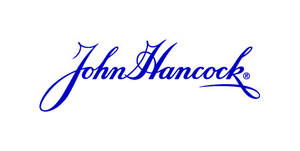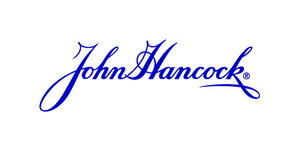New John Hancock Retirement report finds sharp declines in financial progress with employees now twice as likely to take a negative view of their finances than a positive one
TSX/NYSE/PSE: MFC SEHK: 945
- The report found that 38% of employees think they'll have to retire later than planned, a significant increase from the 24% who said they'd need to delay retirement in last year's report.
- 67% percent of employees are interested in receiving financial planning resources from their employer, and 20% would like mental health resources.
BOSTON, April 18, 2023 /PRNewswire/ -Today, John Hancock Retirement, a company of Manulife Investment Management, announced the results of its stress, finances, and well-being report, the ninth annual survey of its retirement plan participants. The report finds employees' financial situations and mental health bearing the brunt of the burden of a year where economic uncertainty and inflation have upended saving and spending habits.
Widespread decline
With the market declines across asset classes in 2022 and the potential for a recession dominating news coverage, 70% of respondents say they're worried a great deal about the economy. The most frequently cited issues were concerns about the impact of inflation on the cost of living, general economic conditions, and rising interest rates.
Nearly all respondents have taken note of rising costs in the past six months, with the vast majority reporting increased spending on groceries, household basics, gas, and monthly bill payments.
Personal finances increasingly strained
Beyond concerns about economic conditions, in general, more than half (58%) of workers are significantly worried about one or more aspects of their personal finances, with some of the frequently cited being saving too little for retirement, credit card debt, and building emergency savings.
These financial worries are coupled with a noteworthy decline in participants' financial situations to below prepandemic levels. Employees are now more than twice as likely to describe their personal finances as fair or poor (42%) as they are to call them good or excellent (20%).
As household budgets are strained by inflation, one in three respondents say it's currently challenging for them to save money and 1 in 5 have dipped into their savings to be able to afford day-to-day necessities.
"Coming out of the pandemic, we were hopeful to see continued improvements in financial well-being, but our results showed how quickly an uncertain economy can take those gains away," said Aimee DeCamillo, head of Global Retirement, Manulife Investment Management. "We did see some resilience, however—despite their financial strain, more than 70% of respondents said they'll be focused on growing, maintaining, or investing their savings in the coming months, with almost half citing paying off debt and planning for retirement as short-term goals."
Generational divide in stress
Overall, mental health has seen a positive shift since last year, with 65% describing their mental health as good compared with 53% previously. Despite this improvement, 7 in 10 say the challenging economic backdrop has had some impact on their mental well-being, with 16% of those saying it's had a major impact.
An even closer look at the data shows stark generational divides in mental well-being, with three-quarters (76%) of boomers saying their mental health is good/very good compared with less than half (46%) of millennials who say the same. In addition, millennials showed more likely than boomers to have experienced stress (89% vs. 67%), depression (50% vs. 28%), and loneliness (49% vs. 25%) in the past year.
Employees' mental health issues are showing up on the job, with 43% reporting that their mental health has interfered with their ability to work in the past year, with millennials (72%) the most likely to experience this problem. Nearly half (44%) of millennials say they worry about their personal finances often while at work, with more than half of them (54%) saying they'd be more productive if they were less worried.
Employee stress takes a toll on companies' bottom lines as well, with financial stress costing employers almost $2,000 ($1,962) per employee in lost productivity and absenteeism last year.[1]
"The levels of stress and worry in the report are troubling, particularly among millennials, especially given the uncertain economic times we are experiencing. The good news is that it is clear that supporting employees through financial wellness programs and working to get them engaged in their personal finance benefits is likely to help boost overall employee satisfaction, retention, and productivity," said Wayne Park, CEO, John Hancock Retirement.
Retirement plan engagement and wellness programs can make a difference
Survey results, in combination with John Hancock Retirement's participant data, found that workers who engage with their retirement plans digitally—by logging in to the plan website or opening email communications from their plan—are more likely to report that they're in good financial shape and on track for retirement than their less engaged peers. The plan participant data shows that employers that are able to engage their employees regularly with relevant, timely information may be helping them take financial action, including increasing their retirement contribution rates.
In addition, employees themselves say that financial wellness programs reduce their financial stress (82%), make them more likely to stay with their employer (78%), and make them more productive (70%).
However, only 3 in 10 say their employer offers a wellness program, while 2 in 5 (41%) are unsure. The current economic conditions represent a clear opportunity for employers to either launch programs for their employees or make a more concerted effort to educate them about their existing programs.
Additional key findings from the report
- Concerns about the impact of inflation on cost of living (58%), economic conditions in general (47%), and rising interest rates (38%) were the most frequently cited issues.
- Nearly all respondents have taken note of rising costs in the past six months, with the vast majority reporting increased spending on groceries (95%), household basics (91%), gas (90%), and monthly bill payments (88%).
- The majority (71%) of respondents say they'll be focused on growing, maintaining, or investing their savings in the coming months, with paying off debt (44%) and planning for retirement (45%) also frequently cited as short-term goals.
- Four in 5 (80%) employees say they're unlikely to work for a company that doesn't offer a retirement plan.
- Fewer than 1 in 3 (31%) respondents have a formal retirement plan, and only 1 in 3 (33%) have met with a financial advisor in the past year.
- While roughly half (53%) of respondents feel their current level of debt is problematic, it appears manageable for now as only 14% consider it a major problem and 61% say they've been able to make their payments without difficulties.
- Nine in 10 employees report that learning about sources of retirement income, projections of income, and connecting with an advisor would encourage them to do more to prepare for retirement.
"While offering financial wellness tools with an engaging, personalized communication plan is something positive employers can do for their bottom line, we like to emphasize that it also can be a significantly positive thing to do for their employees," said Aimee DeCamillo, head of Global Retirement, Manulife Investment Management.
Methodology
In November 2022, John Hancock commissioned our ninth annual stress, finances, and well-being survey with the respected research firm Edelman Public Relations Worldwide Canada Inc. (Edelman). An online survey of 3,825 workers was conducted between 11/29/22 and 12/14/22 to learn more about individual stress levels, their causes and effects, and strategies for relief. John Hancock and Edelman are not affiliated, and neither is responsible for the liabilities of the other.
About John Hancock Retirement
John Hancock Retirement is the U.S. retirement business of Manulife Investment Management. For more than 50 years, we've helped people plan and invest for retirement; today, we're one of the largest full-service providers in the United States.* We take a hands-on, consultative approach based on the idea that no two plans—and no two plan participants—are exactly alike. We partner with plan sponsors, advisors, and third-party administrators to ensure that every plan is personal to the participant and delivers proven results.*
As of December 31, 2022, John Hancock serviced over 55,000 retirement plans with over 3.2 million participants and over $187 billion in AUMA.†
* "PLANSPONSOR 2022 Defined Contribution Recordkeeping Survey," © 2022 Asset International, Inc., June 2022.
† As of 12/31/22, John Hancock Life Insurance Company (U.S.A.) supported 50,882 plans, 1,586,569 participants, and
$89,537,417,404.05 in AUMA. John Hancock Life Insurance Company of New York supported 2,679 plans, 77,845 participants, and $5,128,624,337.04 in AUMA. John Hancock Retirement Plan Services LLC supported 1,879 plans, 1,633,777 participants, and $92,836,605,881.23 in AUMA. Participant counts reflect all active participants with a balance. Approximate unaudited figures for John Hancock, provided on a U.S. statutory basis.
About Manulife Investment Management
Manulife Investment Management is the global brand for the global wealth and asset management segment of Manulife Financial Corporation. We draw on more than a century of financial stewardship and the full resources of our parent company to serve individuals, institutions, and retirement plan members worldwide. Headquartered in Toronto, our leading capabilities in public and private markets are strengthened by an investment footprint that spans 19 geographies. We complement these capabilities by providing access to a network of unaffiliated asset managers from around the world. We're committed to investing responsibly across our businesses. We develop innovative global frameworks for sustainable investing, collaboratively engage with companies in our securities portfolios, and maintain a high standard of stewardship where we own and operate assets, and we believe in supporting financial well-being through our workplace retirement plans. Today, plan sponsors around the world rely on our retirement plan administration and investment expertise to help their employees plan for, save for, and live a better retirement. Not all offerings are available in all jurisdictions. For additional information, please visit manulifeim.com.
About Manulife
Manulife Financial Corporation is a leading international financial services provider, helping people make their decisions easier and lives better. With our global headquarters in Toronto, Canada, we provide financial advice and insurance, operating as Manulife across Canada, Asia, and Europe, and primarily as John Hancock in the United States. Through Manulife Investment Management, the global brand for our Global Wealth and Asset Management segment, we serve individuals, institutions, and retirement plan members worldwide. At the end of 2022, we had more than 40,000 employees, over 116,000 agents, and thousands of distribution partners, serving over 34 million customers. We trade as "MFC" on the Toronto, New York, and the Philippine stock exchanges and under "945" in Hong Kong.
Not all offerings are available in all jurisdictions. For additional information, please visit manulife.com.
John Hancock Retirement Plan Services LLC offers administrative and/or recordkeeping services to sponsors and administrators of retirement plans. John Hancock Trust Company LLC provides trust and custodial services to such plans. Group annuity contracts and recordkeeping agreements are issued by John Hancock Life Insurance Company (U.S.A.), Boston, MA (not licensed in NY), and John Hancock Life Insurance Company of New York, Valhalla, NY. Product features and availability may differ by state. Securities are offered through John Hancock Distributors LLC, member FINRA, SIPC.
John Hancock Investment Management Distributors LLC is the principal underwriter and wholesale distribution broker-dealer for the John Hancock mutual funds, member FINRA, SIPC.
NOT FDIC INSURED. MAY LOSE VALUE. NOT BANK GUARANTEED.
© 2023 John Hancock. All rights reserved.
MGR0410232834782
_______________________________ |
1 This is a hypothetical illustration used for informational purposes only based on data from John Hancock's 2023 stress, finances, and well-being survey. This calculator is intended to provide general information about how much financial stress can cost a company every year. The above calculation is based on missing 2.8 hours/year and 39.6 hours/year of lost productivity due to symptoms of financial stress, with an assumed salary of $46.27 per hour. Individual circumstances may vary and may not be reflective of your situation. |
SOURCE John Hancock Retirement

WANT YOUR COMPANY'S NEWS FEATURED ON PRNEWSWIRE.COM?
Newsrooms &
Influencers
Digital Media
Outlets
Journalists
Opted In





Share this article